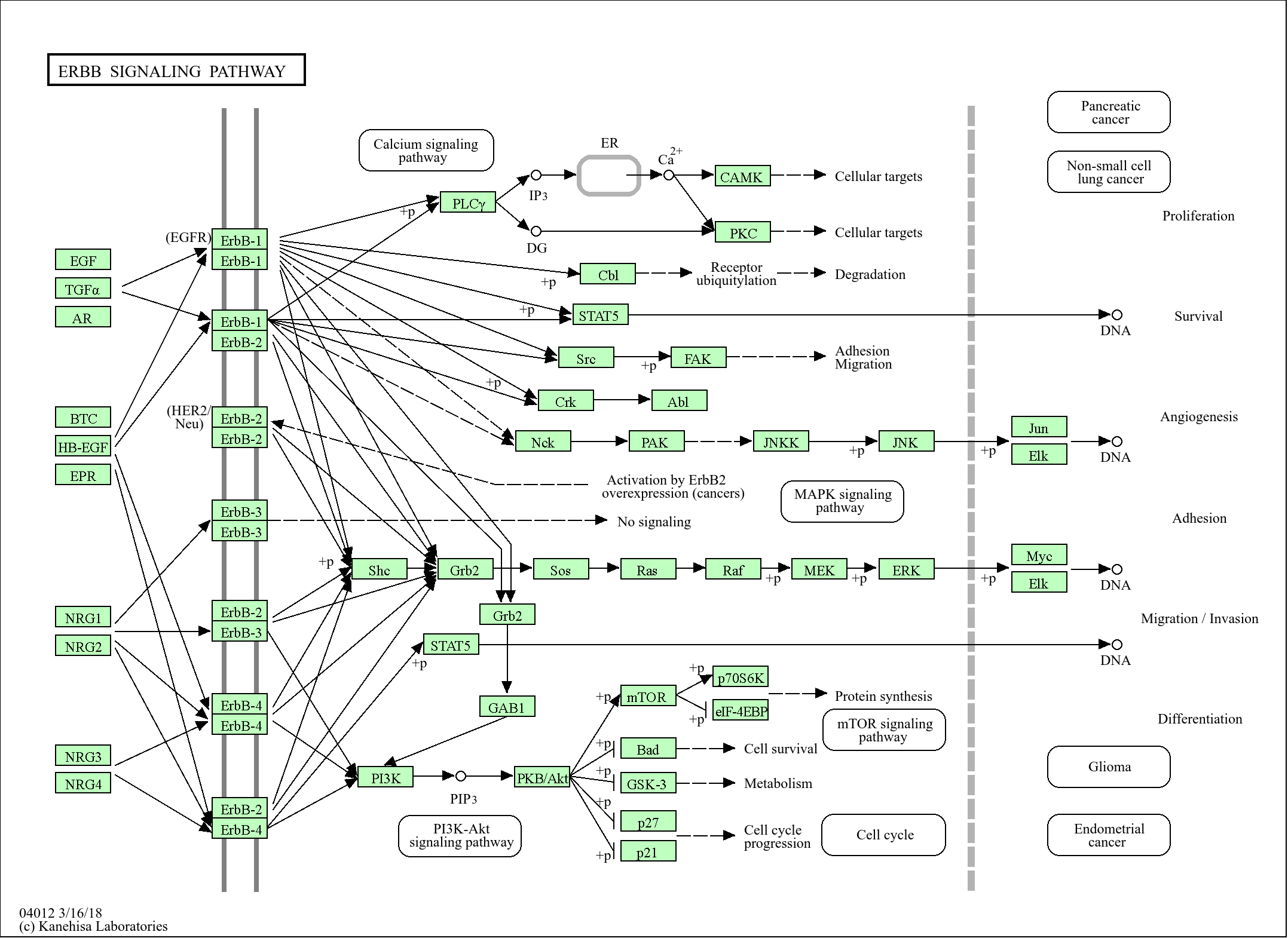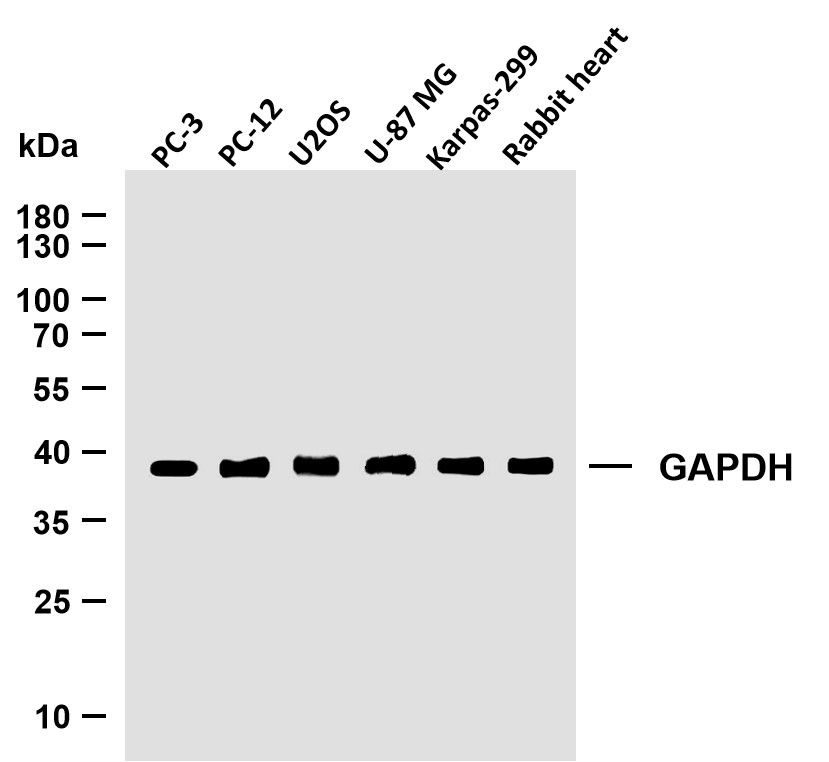
Catalog: YM4812
Size
Price
Status
Qty.
200μL
$600.00
In stock
0
100μL
$340.00
In stock
0
40μL
$190.00
In stock
0
Add to cart


Collected


Collect
Main Information
Target
E-cadherin
Host Species
Mouse
Reactivity
Human, Mouse, Rat
Applications
IHC, WB, IF, ELISA
MW
97kD (Calculated)
120kD (Observed)
Conjugate/Modification
Unmodified
Detailed Information
Recommended Dilution Ratio
IHC 1:200-1000; WB 1:500-2000; IF 1:100-500; ELISA 1:1000-5000
Formulation
PBS, 50% glycerol, 0.05% Proclin 300, 0.05%BSA
Specificity
The antibody can specifically recognize E-cadherin protein.
Purification
Protein G
Storage
-15°C to -25°C/1 year(Do not lower than -25°C)
MW(Calculated)
97kD
MW(Observed)
120kD
Modification
Unmodified
Clonality
Monoclonal
Clone Number
ABT181
Isotype
IgG2b,Kappa
Related Products
Antigen&Target Information
Immunogen:
Synthesized peptide derived from human protein. AA range:700-800
show all
Specificity:
The antibody can specifically recognize E-cadherin protein.
show all
Gene Name:
CDH1 CDHE UVO
show all
Protein Name:
Cadherin-1 (CAM 120/80) (Epithelial cadherin) (E-cadherin) (Uvomorulin) (CD antigen CD324) [Cleaved into: E-Cad/CTF1; E-Cad/CTF2; E-Cad/CTF3]
show all
Other Name:
Cadherin-1 ;
CAM 120/80 ;
Epithelial cadherin ;
E-cadherin ;
Uvomorulin ;
CD324 ;
CDH1 ;
CDHE
CAM 120/80 ;
Epithelial cadherin ;
E-cadherin ;
Uvomorulin ;
CD324 ;
CDH1 ;
CDHE
show all
Background:
E-Cadherein, 120kDa, is a critical regulator of epithelial junction formation. The E-cadherin internal domain binds with alpha, beta, gamma, and p120 catenins to anchor the ECAD complex to the actin cytoskeleton of the cell. E-cadherin is expressed in virtually all epithelial cells with the exception of adrenocortical cells. The expression in liver cells is weaker than in most other epithelia. ECAD is also expressed in melanocytes (adhering to squamous epithelial cells). Mesothelial cells and granulosa cells are ECAD negative. Mesenchymal cells and neural crest cells are mostly negative but some types may show a weak reaction. Testicular germinative cells are weakly positive. At present, it is commonly used to differentiate breast lobular cancer from ductal cancer (the former is often negative, the latter is often positive).
show all
Function:
Disease:Defects in CDH1 are a cause of gastric cancer [MIM:137215]; also known as hereditary familial diffuse gastric cancer (HDGC).,Disease:Defects in CDH1 are a cause of susceptibility to endometrial cancer [MIM:608089].,Disease:Defects in CDH1 are associated with ovarian cancer [MIM:167000]. Ovarian cancer is the leading cause of death from gynecologic malignancy. It is characterized by advanced presentation with loco-regional dissemination in the peritoneal cavity and the rare incidence of visceral metastases. These typical features relate to the biology of the disease, which is a principal determinant of outcome.,Disease:Defects in CDH1 are involved in dysfunction of the cell-cell adhesion system, triggering cancer invasion (gastric, breast, ovary, endometrium and thyroid) and metastasis.,Function:Cadherins are calcium dependent cell adhesion proteins.,Function:Cadherins are calcium-dependent cell adhesion proteins. They preferentially interact with themselves in a homophilic manner in connecting cells; cadherins may thus contribute to the sorting of heterogeneous cell types. CDH1 is involved in mechanisms regulating cell-cell adhesions, mobility and proliferation of epithelial cells. Has a potent invasive suppressor role. It is a ligand for integrin alpha-E/beta-7.,Function:E-Cad/CTF2 promotes non-amyloidogenic degradation of Abeta precursors. Has a strong inhibitory effect on APP C99 and C83 production.,online information:E-cadherin entry,PTM:During apoptosis or with calcium influx, cleaved by a membrane-bound metalloproteinase (ADAM10), PS1/gamma-secretase and caspase-3 to produce fragments of about 38 kDa (E-CAD/CTF1), 33 kDa (E-CAD/CTF2) and 29 kDa (E-CAD/CTF3), respectively. Processing by the metalloproteinase, induced by calcium influx, causes disruption of cell-cell adhesion and the subsequent release of beta-catenin into the cytoplasm. The residual membrane-tethered cleavage product is rapidly degraded via an intracellular proteolytic pathway. Cleavage by caspase-3 releases the cytoplasmic tail resulting in disintegration of the actin microfilament system. The gamma-secretase-mediated cleavage promotes disaaaembly of adherens junctions.,similarity:Contains 5 cadherin domains.,subcellular location:Colocalizes with DLGAP5 at sites of cell-cell contact in intestinal epithelial cells. Anchored to actin microfilaments through association with alpha-, beta- and gamma-catenin. Sequential proteolysis induced by apoptosis or calcium influx, results in translocation from sites of cell-cell contact to the cytoplasm.,subunit:Homodimer; disulfide-linked. Interacts directly, via the cytoplasmic domain, with CTNNB1 or JUP to form the PSEN1/cadherin/catenin adhesion complex which connects to the actin skeleton through the actin binding of alpha-catenin. Interaction with PSEN1, cleaves CDH1 resulting in the disassociation of cadherin-based adherens junctions (CAJs). Interacts with AJAP1, CTNND1 and DLGAP5.,tissue specificity:Non-neural epithelial tissues.,
show all
Cellular Localization:
Membranous
show all
Tissue Expression:
show all
Research Areas:
>>Rap1 signaling pathway ;
>>Apelin signaling pathway ;
>>Hippo signaling pathway ;
>>Cell adhesion molecules ;
>>Adherens junction ;
>>Bacterial invasion of epithelial cells ;
>>Pathways in cancer ;
>>Endometrial cancer ;
>>Thyroid cancer ;
>>Melanoma ;
>>Bladder cancer ;
>>Gastric cancer
>>Apelin signaling pathway ;
>>Hippo signaling pathway ;
>>Cell adhesion molecules ;
>>Adherens junction ;
>>Bacterial invasion of epithelial cells ;
>>Pathways in cancer ;
>>Endometrial cancer ;
>>Thyroid cancer ;
>>Melanoma ;
>>Bladder cancer ;
>>Gastric cancer
show all
Signaling Pathway
Cellular Processes >> Cellular community - eukaryotes >> Adherens junction
Human Diseases >> Cancer: overview >> Pathways in cancer
Human Diseases >> Cancer: specific types >> Gastric cancer
Human Diseases >> Cancer: specific types >> Thyroid cancer
Human Diseases >> Cancer: specific types >> Melanoma
Human Diseases >> Cancer: specific types >> Bladder cancer
Human Diseases >> Cancer: specific types >> Endometrial cancer
Environmental Information Processing >> Signal transduction >> Rap1 signaling pathway
Environmental Information Processing >> Signal transduction >> Hippo signaling pathway
Environmental Information Processing >> Signal transduction >> Apelin signaling pathway
Environmental Information Processing >> Signaling molecules and interaction >> Cell adhesion molecules
Reference Citation({{totalcount}})
Catalog: YM4812
Size
Price
Status
Qty.
200μL
$600.00
In stock
0
100μL
$340.00
In stock
0
40μL
$190.00
In stock
0
Add to cart


Collected


Collect
Recently Viewed Products
Clear allPRODUCTS
CUSTOMIZED
ABOUT US
Toggle night Mode
{{pinfoXq.title || ''}}
Catalog: {{pinfoXq.catalog || ''}}
Filter:
All
{{item.name}}
{{pinfo.title}}
-{{pinfo.catalog}}
Main Information
Target
{{pinfo.target}}
Reactivity
{{pinfo.react}}
Applications
{{pinfo.applicat}}
Conjugate/Modification
{{pinfo.coupling}}/{{pinfo.modific}}
MW (kDa)
{{pinfo.mwcalc}}
Host Species
{{pinfo.hostspec}}
Isotype
{{pinfo.isotype}}
Product {{index}}/{{pcount}}
Prev
Next
{{pvTitle}}
Scroll wheel zooms the picture
{{pvDescr}}


















